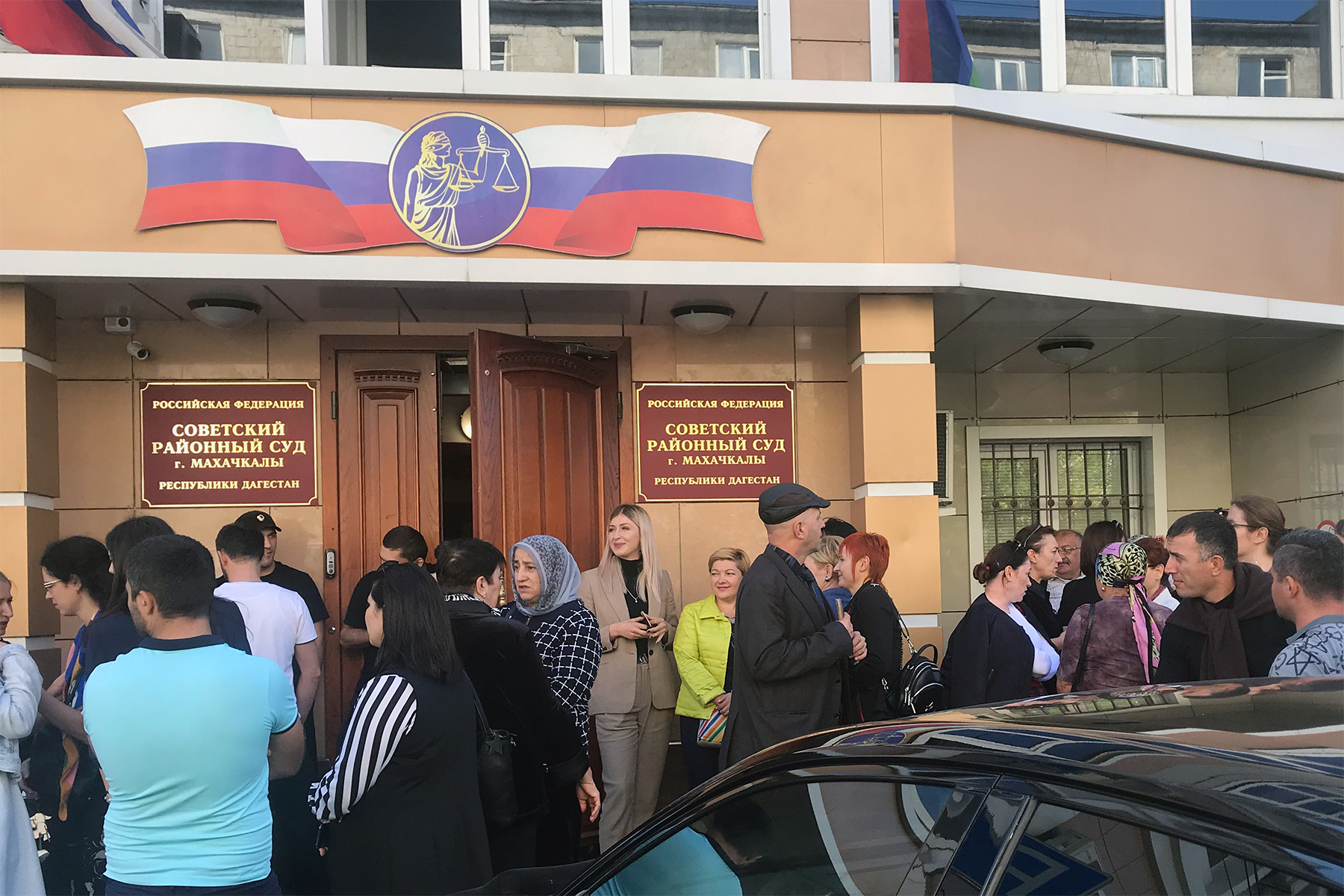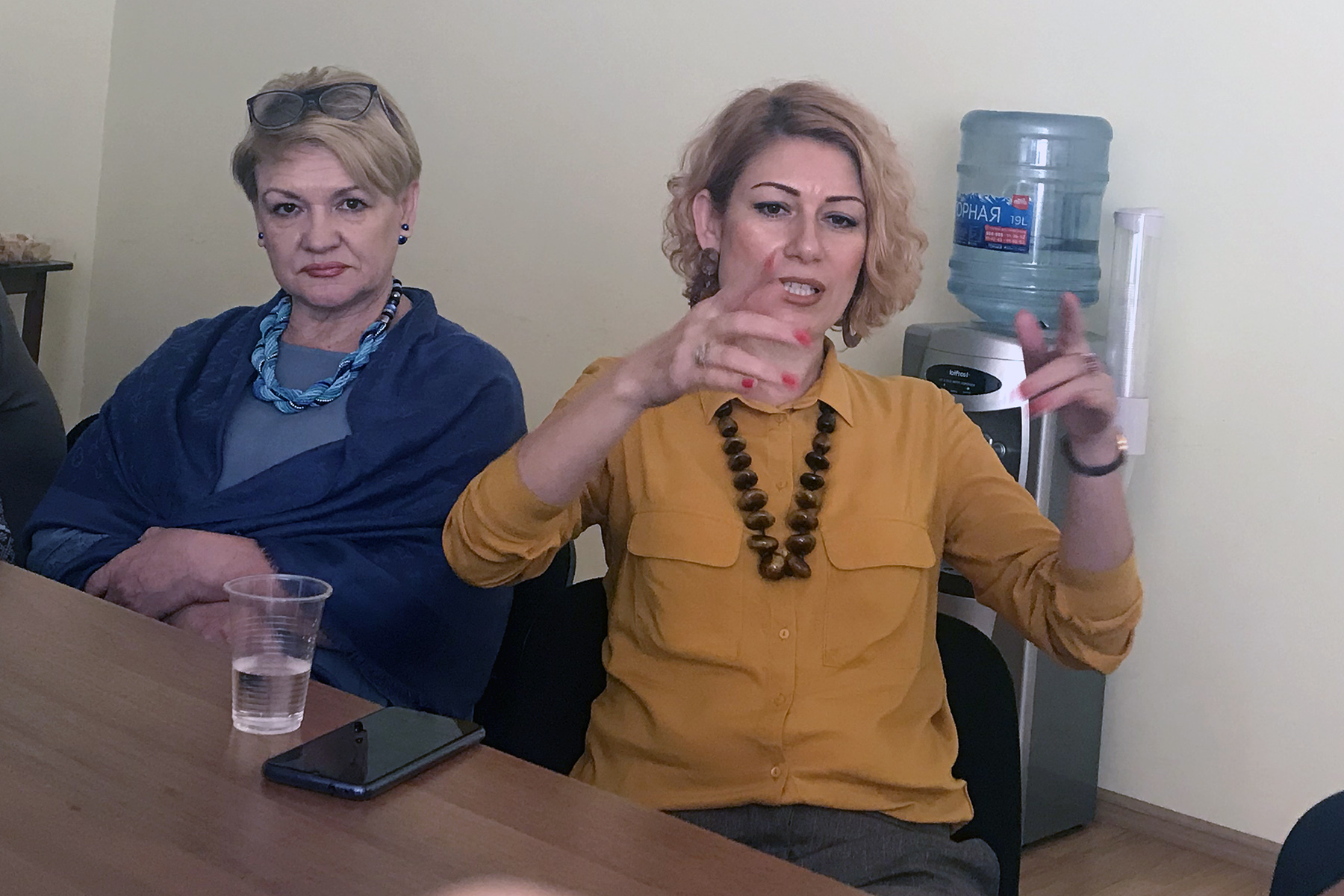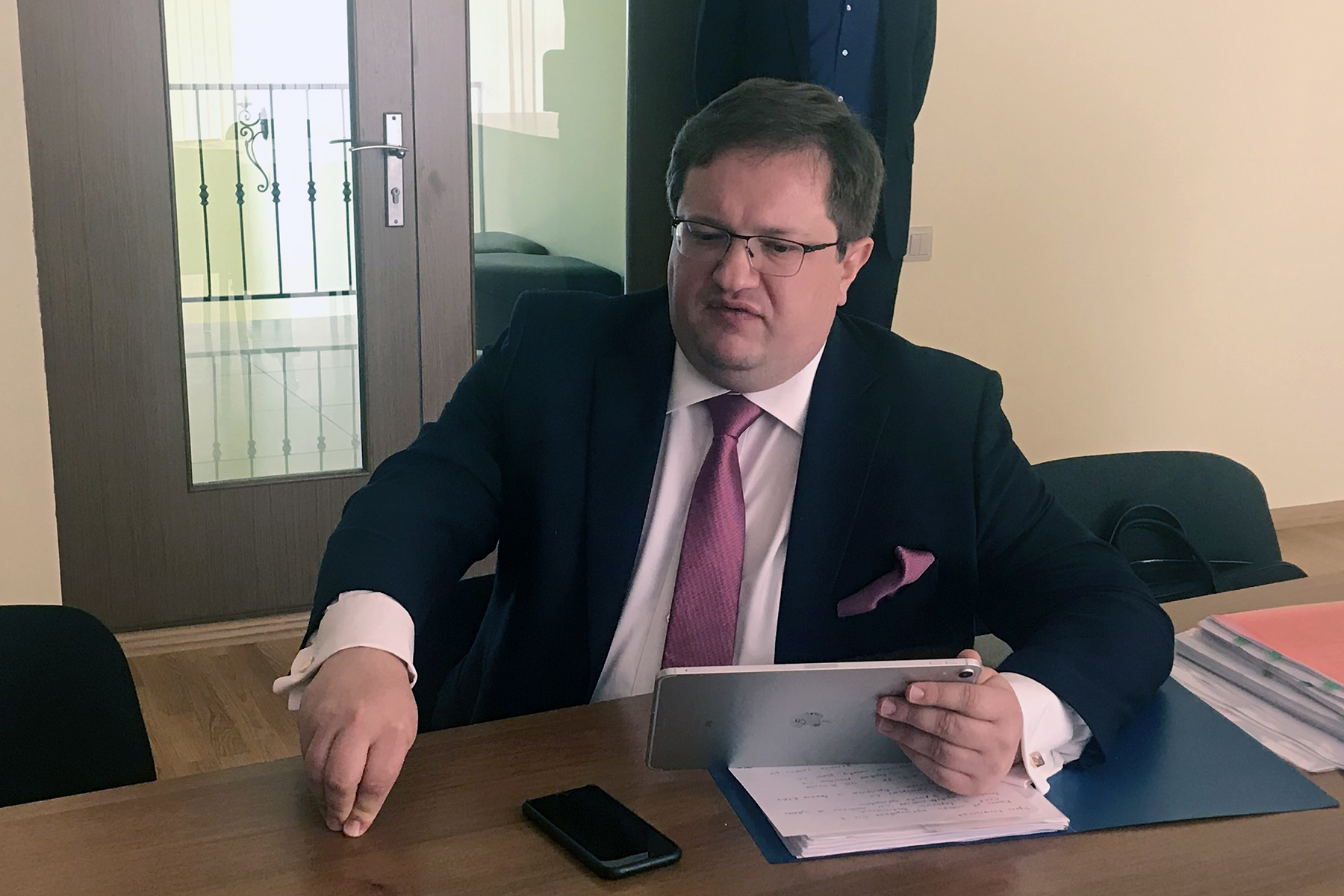
Since 2017, the Jehovah’s Witnesses religious organisation has been banned in Russia — branded and ‘extremist sect’. With arrests and prosecutions taking place throughout the country since, the authorities have now turned their eyes to Daghestan, and after raids throughout the republic, four members are now on trial.
In June, four Jehovah’s Witnesses were arrested in Daghestan accused of ‘extremist activity’. A lawyer for those arrested told OC Media that these were the first such mass searches and arrests in Daghestan in the wake of similar detentions of Jehovah’s Witnesses throughout Russia.
On 24 September, Makhachkala’s Sovietsky District Court extended their pre-trial detention for two months, citing the ‘risk’ they may go into hiding or put pressure on witnesses.
‘Those who came to search understood that we were harmless and not dangerous. They even took off their body armour and masks, I set a table for them; they calmly drank tea’, Suat Abdulayeva told OC Media.
‘In the beginning, they shouted to make a show and threw us to the floor. Investigators have admitted to us that they see that we are not to blame for anything, but they were given orders from above.’
Abdulayeva’s husband, Arsen Abdullayev, was one of the four arrested on 1 June, along with Maria Karpova, Anton Dergalyov, and Marat Abdulgalimov. Their detention was preceded by a series of raids by the Daghestani Federal Security Service (FSB) in Makhachkala, Kaspiysk, Kizlyar, and Derbent.
A spokesperson for the Daghestani Investigative Committee told OC Media that a criminal case against the four was launched on 27 May, and that prior to this the group was under surveillance and had their phones tapped.
According to the Investigative Committee, they ‘discovered’ that the four had created the ‘cell’ of the ‘Jehovah’s Witnesses extremist association’ no later than December 2017.
A spokesperson for the Daghestani FSB told OC Media that ‘as a result of the raids, the activity of 15 cells of the Jehovah’s Witnesses religious association were suppressed, 10 people were detained, and four were recognised as the organisers of the sect’.
According to them, the detainees ‘conducted open anti-Russian and anti-constitutional activities in the form of propaganda work among the population’.
‘They were trained in foreign centres, received funding from there and recruited new Jehovah’s Witnesses followers in Daghestan’.
The FSB also stated that they had ‘spent years holding conspiratorial gatherings’, where they studied ‘extremist literature’.
Russia’s war on Jehovah’s Witnesses
Jehovah’s Witnesses are a Christian denomination with their own interpretation of many religious concepts.
The Russian Jehovah’s Witnesses organisation reports they have around 200,000 followers in the country, just 350 of which are in Daghestan.
In April 2017, the Russian Supreme Court banned the activities of Jehovah’s Witnesses in Russia, declaring the ‘Jehovah’s Witnesses Management Centre in Russia’ and its local affiliates extremist organisations. Their property was confiscated, and arrests followed.
Human Rights Watch called the decision a violation of religious freedom and declared these measures unjustified. More than 150 Russian activists at the initiative of the Sova Information and Analytical Centre signed an open letter on the need to immediately release those arrested and cancel the decision of the Supreme Court.
On 28 May 2018, the European Court of Human Rights (ECHR) began to consider a complaint by the Jehovah’s Witnesses 395 Russian communities of Jehovah’s Witnesses over the ban. They are seeking compensation of ₽6 billion ($94 million) for discriminatory prohibition of their activities and a violation of the right to a fair trial, the right to freedom of thought, conscience and religion, and freedom of assembly and association.
The ECHR has asked the Russian authorities for clarification in the context of the European Convention on Human Rights, which guarantees freedom of religion.
Russia’s Memorial Human Rights Centre called the criminal cases against Jehovah’s Witnesses a campaign of persecution of believers and recognised those arrested as political prisoners.
‘Now there are no meetings or congresses happening in Russia’, Abdulayeva says. ‘Religious literature has not been imported into Russia since 2015. Jehovah’s Witnesses do not have this literature, only the law enforcement agencies have it to plant it.’
According to Abdulayeva, a representative of the Russian Human Rights Council, Vladimir Ryakhovsky, called the detention of Jehovah’s Witnesses ‘a trend’, since it is ‘easy for law enforcement agencies to classify believers as extremists’.
‘We don’t even buy toy weapons for children’
According to Abdulayeva, this is not the first time that the FSB has tried to detain her husband. Three years ago, she says, officers planted weapons, drugs, and Jehovah’s Witnesses religious literature on him.

‘From the very beginning it was absurd, since religion is generally against drugs, weapons, and violence. We don’t even buy toy weapons for children’, she said.
‘We never participated in any kind of violence, for this reason, we don’t even join the army, choosing an alternative service so that it is not connected with military operations’.
She said that Jehovah’s Witnesses would never ‘break the law or wish harm to anyone’.
According to her, when they searched their house and planted evidence, she took an incriminating audio recording of officers.
‘I made it clear that I had incriminating evidence against them and that the officers who conducted the search could be imprisoned’.
A criminal case was not opened and Abdulayev was eventually released, but not before, according to her, he was beaten into confessing.
‘After that, law enforcement agencies left us alone for a while’.
‘If they are so dangerous, why did they wait?’
Anton Bogdanov, a lawyer representing the four, told OC Media that Jehovah’s Witnesses have been detained and prosecuted throughout Russia for the past two years, but that this was the first time such mass searches and arrests were carried out in Daghestan. According to him, around 200 Jehovah’s Witnesses have so far been prosecuted in Russia.
Bogdanov told OC Media that in the case file submitted to the court in Makhachkala, there was not a single justification for the arrests. He said the court and the investigators were guided by the supposed gravity of the crime.
Bogdanov said that the police had applied physical and psychological pressure on the detainees, but that they had refused to slander themselves or others.
‘They collected material on them for 1.5 years, while these Jehovah’s Witnesses — “extremists” — freely moved around the country. If they are so dangerous, why did they wait 1.5 years? They could have committed illegal actions’, said Bogdanov.
In Russia: ‘Anyone can be accused of extremism’
Maxim Pervunin, a lawyer who has defended Jehovah’s Witnesses in courts throughout Russia, says that the prosecution of Jehovah’s Witnesses is just another tool by which law enforcement agencies demonstrate their ‘effectiveness’ at fighting extremism.
Pervunin told OC Media that Jehovah’s Witnesses have been persecuted in Russia since Soviet times, when they were labelled ‘American spies’. In the 1990s, the Ministry of Justice ‘started active propaganda’ against them, he says.

‘Their first prohibitions were not supported by the courts. Then they took a different path — they declared their [religious] literature “extremist”. It was on this basis that in 2017, the Supreme Court of the Russian Federation banned the organisation, but it was not included in the list of extremists.’
‘The [Supreme Court] ruling states that there is no prohibitions or restrictions on professing individually, and there is no assessment of the creed of Jehovah’s Witnesses’, he says.
One Jehovah’s Witness in Daghestan who asked not to be named told OC Media that while the court had ruled that believers can safely practice their religion, in practice, the authorities simply made out that believers were ‘continuing the activities of the banned organisation’. The punishment for this crime is up to 6 years in prison.
‘Most of all they find fault with the words that Jehovah’s Witnesses consider their religion to be correct’, he said.
‘Experts see this as “propaganda of exclusivity”, which means it is extremism.’
Pervunin says that violations of human rights, including the right to freedom of religion, is systemic in Russia. He says the system allows ‘anyone to be […] accused of extremism’.
‘The judges do not want to quarrel with the FSB, because the appointments and punishments of the judges are coordinated with this service’, he added.
According to Pervunin, details of the prosecution of the four Daghestani Jehovah’s Witnesses have now been attached to the complaint to the ECHR.
Speaking about the latest crackdown in Daghestan and her husband’s arrest, Suat Abdulayeva remains defiant. ‘These people are our acquaintances, they never did anything wrong to anyone.’
‘Nobody can forbid us to believe in what we believe.’




 30 October 2019
30 October 2019


